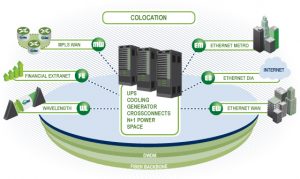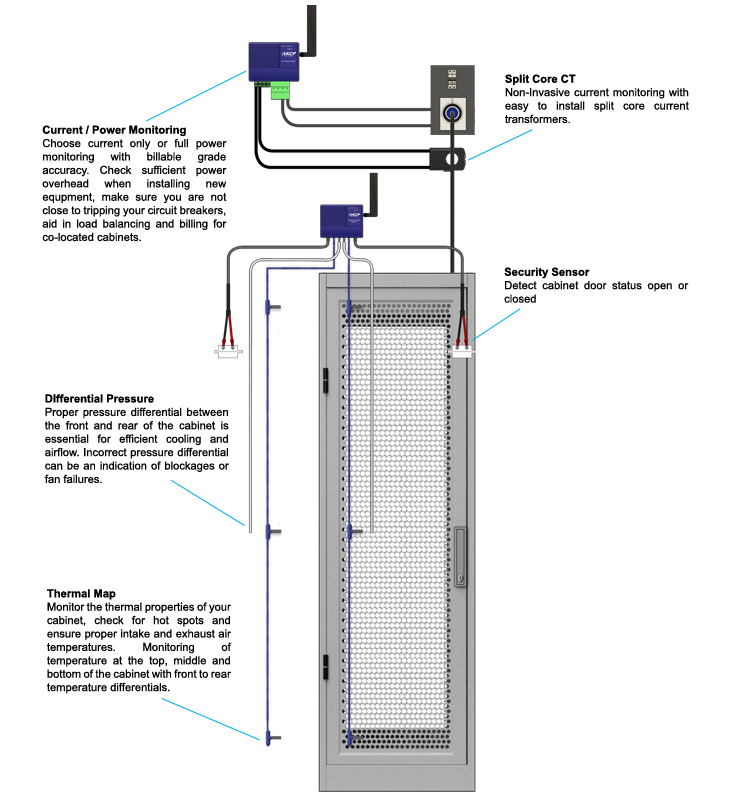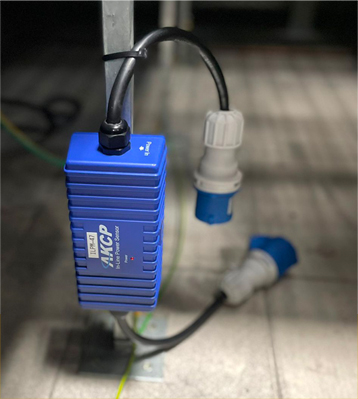Business expansion is almost never a bad thing. After all, it is what organizations strive for day in and day out. Growth, on the other hand, brings a slew of new issues that many firms aren’t prepared to face. As a company grows, so does its data. The continuous focus on digital transformation and the Internet of Things (IoT) is partly responsible for this. According to the most recent forecasts, the amount of fresh data would reach 180 zettabytes (ZB) by 2025, up from 44 ZB in 2020. Inadequate data center space and strained bandwidth are unavoidable consequences of increasing data volumes. This may cause service disruptions and have an impact on operations. One solution to this is to opt for a colocation data center. Let’s examine what the benefit of colocation is.
Businesses want flexible space and connection solutions that can satisfy current and future needs without jeopardizing security or compliance in order to properly store, manage, and analyze data. In-house data center solutions, on the other hand, may not be able to keep up with the business expansion. While expanding your data center is an option, it may be quite costly and time-consuming. It also necessitates a degree of competence that many organizations lack internally.
A colocation is a versatile option that allows companies to scale their infrastructures as needed. According to a study conducted by Vanson Bourne, 79% of large firms claim their digital initiatives are fast expanding their requirement for third-party colocation services. Businesses should examine the advantages of colocation before creating a new data center or expanding an existing onsite facility.
What Is Colocation And How Can I Benefit?

Photo Credit: www.nexgen-net.com
Instead of installing your servers on your own premises, you can colocate them in a professionally managed data center. As a result, rather than having to find space in your own building, pay for expensive cooling, and handle server maintenance yourself, you hire a third-party provider to do it for you as part of a business colocation service.
High-speed network connections between your office and their data center allow you to access your servers and storage as if they were in your own office.
Colocation is a popular choice for businesses of all sizes since it offers advantages:
Controlled Costs
It is costly to construct a data center. The upfront expenses alone can be enormous, from obtaining land, planning the project, and constructing the facility, to installing fiber connectivity and integrating physical security and crucial operating systems. There are continuous maintenance and staffing expenditures even after the construction is completed. Businesses can lease existing space instead of developing their own facility, saving time, money, and stress. Internal IT teams will be able to focus on revenue-generating activities as a result of this re-allocation of resources.
Businesses can also change their cost structures from capital expenditures (CapEx) to operational expenses (OpEx) under an outsourced model, resulting in a more constant and predictable monthly payment structure. Businesses can also keep expenses under control by only paying for the space, electricity, and connectivity they require. Additionally, as a company grows, it might benefit from economies of scale and improved opportunities to negotiate better agreements.
Strategic Data Center Locations

Photo Credit: www.dotmagazine.online
Third-party data centers provide strategically positioned facilities that enable organizations to choose locations that best match their objectives, such as installing a production environment near a corporate headquarters to facilitate low-latency connections and give data center management easy access. Organizations can also create disaster recovery (DR) sites at a safe distance from the original location thanks to a portfolio of geographically diversified national data centers. Building two data centers to handle this disaster recovery plan is prohibitively expensive for many businesses.
Data Center Redundancy and Diverse Connectivity Options
Third-party data centers also provide redundant infrastructure, which helps to ensure 100% uptime. Multiple UPSs, cooling units, generators, power grids, and power feeds are all included. They also provide enhanced interconnection as well as access to several carriers and big hyperscale clouds. In most cases, on-premise data centers do not have access to such a diverse range of suppliers. This resiliency ensures that if one important element or connectivity path fails, another can take its place.
Rapid Scalability

Photo Credit: www.fujitsu.com
It’s exceedingly tough to size an internal data center to perfection. If you construct it too big, you’ll be paying for extra space, and if you build it too little, you’ll run into capacity issues later. Businesses can hire existing space from an outsourced supplier to swiftly meet capacity needs without having to invest resources. Businesses that are unable to maintain their expansion might quickly reduce their size. This elasticity goes beyond space and electricity, allowing organizations to swiftly expand bandwidth to accommodate traffic spikes that could otherwise create performance concerns and disruptions.
Year-Round Onsite Expertise
Operating a data center takes time and requires specialized knowledge that is difficult to maintain internally. Businesses that run their own data centers divert important IT resources away from the core, mission-critical IT projects. The facility is overseen by a competent team of specialists while you colocate. This crew is available to handle complaints and assure optimal performance 24 hours a day, 7 days a week, 365 days a year. Data Center migration is a solution that combines the cost advantages of colocation with the flexibility of an outsourced model, while also providing the exact knowledge enterprises require, when they need it, without the expenditure of employing a skill set they may not require in the long run. This on-demand knowledge enhances the consumer experience while also providing peace of mind.
Data Center Security And Compliance
Data security is still a top priority for businesses. Colocation provides multiple layers of physical protection to guarantee that only authorized individuals have access to the facility. Perimeter fencing, 24-hour guard patrols, visitor screens, video surveillance, card readers, and biometric access controls are among the features. Colocation facilities also use rules and controls to assist them to achieve various compliance certifications and standards, such as SOC 1, SOC 2, SSAE 18, ISO 27001, HIPAA, and PCI DSS.
On-going Innovation
Colocation companies also invest in new, innovative technologies that on-premise data centers may not be able to adopt because of a lack of resources. These technologies can improve overall performance, cost efficiency and time management, and total operational value by streamlining procedures and operations.
Colocation entrusts a business’ data to a data center professional equipped with the right operational environment, security, staffing, and protocols. As businesses continue to grow, ensuring the data center environment can support shifting needs is more critical than ever. With colocation, data center environments can scale in lockstep with changing needs and deliver the connectivity, security, resiliency, and support necessary to succeed in an increasingly fast-paced, digital landscape.
AKCP Monitoring Solutions
Both the hosting firm and its tenants benefit from AKCPro Server DCIM solution for colocation, hosting, or managed cloud providers. With real-time monitoring, the provider is able to identify unused data center power and space capacity that can be sold for additional money, while tenants gain visibility into their own consumption data.
Workflow Management
- Improve the colocation operation by coordinating resources as needed.

Photo Credit:
- Increase planning precision and reduce human error.
- Pre-establishing a chain of command in the event of an emergency can help in contingency planning.
Cooling Management
- View performance in real-time and overtime.
- Plan ahead for future energy requirements.
- By adjusting the temperature and balancing the load, you can save money.
- Prevent overheating and the resultant equipment and facility damage.
Power Monitoring
- Monitor electricity use and look for unusual patterns.
- Prevent energy problems before they become a problem for your tenants.
- Increase uptime by ensuring redundancy.
- Identify underutilized power infrastructure and prevent waste.
Capacity Planning
- Tenant capacity consumption requires proactive contingency planning.
- Predicting the lifespan of data centers with accuracy.
- Identify extra space that can be sold and provide tenants with unique services.
- Spending money on an expansion that isn’t necessary or premature is a bad idea.
Migrations And Consolidations
- With high-level and drill-down views of capacity, accurate decisions on migration and consolidation may be made.
Excess or scarcity of space is predicted. - Based on historical and real-time data, advanced migration and consolidation planning is possible.
SLA Management
- For service agreement reporting, management solutions to monitor power, cooling, and other parameters are available.
- With uptime and status reports, logs, and aggregation tools, you can ensure SLA compliance and regulatory requirements.
- Notify tenants when power or space constraints are approaching.
AKCP Rack+ Wireless Solution For Colocation
The AKCP Rack+ Wireless Sensors use AKCP Wireless Tunnel LoRa radio technology to enable rapid deployment, no cabling, and easy expansion without the need for additional sensor ports and base units. Save money by reducing the number of IP addresses and the amount of rack space required. The data from the sensors is sent to an AKCP LoRa gateway, such as the L-DCIM. For monitoring all of your cabinets, you’ll need a secure and independent private LoRa network.
Reference Links:
https://www.4d-dc.com/insight/colocation-business-benefits
https://www.telnetww.com/blog/data-center/14-reasons-why-colocation-is-good-for-business/
https://datacenterfrontier.com/7-ways-your-business-can-benefit-from-colocation/





